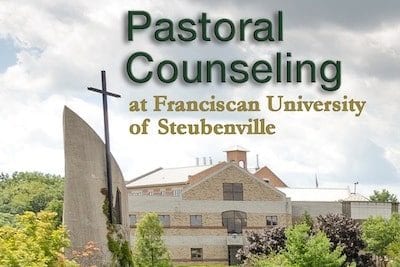One of my favorite quotes and one that keeps coming back to me was said by Saint Irenaeus, “The glory of God is man fully alive.” Despite the fact that Saint Irenaeus lived around 130 to 203 AD, these words still strike deeply to the heart. As I sit with this quote again I am brought into the mystery of what it means to be fully alive. Is there a part of me that is dead or sleeping and if so how do I wake that up? As I search for these answers through Psychologists, Church teaching, theologians, authors, and the like, I am overwhelmed with so many different voices ringing through my head and I am left with the same question that Pilate asked Jesus during His trial: “Quid est veritas?” What is truth?
It would appear that the western culture of the 21st century has it’s own brand of truth, a truth in which stifles me rather than liberates me. Issues of human life and sexual liberation are clouded by carnal fulfillment under the guise of freedom and gender liberation. A culture which prides itself on the status of being unique is pitted against it’s own dichotomy of beauty standards and career accomplishment. Is it true that unless I look and feel a certain way then I am less than beautiful? Is it true that unless I find a career that fulfills me and creates a lifestyle of comfort than I am not an accomplished American? How can you ever live up to these expectations when it’s hard to pull yourself out of bed again at 6am to go to a job that makes you want to change your name and flee to Costa Rica and never come back?
And then there’s the Church. How do I know that the Christian truth is worth listening to? The Catholic Church particularly has just gone through one of the biggest scandals in her history. Many of her priests and even hierarchy have betrayed deeply the Truth that they were supposed to be teaching us, which is the profound opportunity to be lifted up from the current state of mortality into immortality; The ability to be called a beloved child of God, who holds the entity of creation, with all it’s sufferings and confusion, and to be held by those same arms in safety and in love. The Church claims a truth that one can be so close to Savior of the world that you are “eyelash to eyelash” with Him. Can we trust that truth now? Quid est veritas?
So there are two perspectives here, one of the culture and one of the Church, and each of these it would seem, bring more questions than answers, and again I am brought into the silence and into the question of what does it mean to be fully alive? It’s funny because what sparked this question comes from the difficulties in defining what it means to be a Pastoral Counselor. As I searched my heart to try and come up with a language that describes how my heart feels about bringing in spirituality and counseling in a pastoral setting, I found myself remembering the term “Thisness” coined by Blessed John duns Scotus, a Franciscan philosopher of the 13th century. In short, he claims that all of creation uniquely manifests the Divine in the greatest way it is capable of by its nature. In other words, what that means is that every single blade of grass reflects a part of the Divine. If blades of grass are able to convey a piece of the Divine, then how much more is man capable of this being that we were created in the image and likeness of God? What’s more is that just in the same way that each blade of grass is unique and different, man, even more so, is beyond unique and special in reflecting God by his existence. When I sit with that I am empowered and filled with awe and wonder, how could the God of the universe reflect His Love and Divinity though me?! So I went to bed that night with this amazing epiphany on my mind, and when I woke up the next day I forgot that I uniquely and personally reflect the glory of God through my nature as a human being. How on earth could I forget that?! But I did. And when I remembered again as I began to write this post I was stuck with another question, what is stopping me from living out this Glory in my life? I think that all of these questions that I have been asking are questions that are beyond that of a counseling nature, they require a different depth and perspective of the incarnational understanding of the human person. Where conventional counseling helps to deal with the mind and it’s interactions interpersonally and intrapersonally, pastoral counseling brings something unique, it looks at the relationship with the self, others, and God, a perspective that, in my own opinion, is much more holistic than conventional counseling. A quote that I love by Berry K. Esdalt in his book Pastoral Counseling says, “A pastoral counselor is a religiously integrated person who approaches others with a sense of mystery along with an ability to enter into communion with others in a therapeutic alliance with the goal of reconciliation and personal religious integrity.” After reading this quote I was blown away. These questions I was grappling with (and will probably continue to grapple with) are dealing with the mystery of a pilgrims journey through this life. As a Christian, the knowledge of the self goes beyond that of a physical nature. A Christian understanding of the self is both human and divine, again incarnational. My definition of a Pastoral Counselor then is one that reverences and respects the incarnational holism of the human person.
Ok Sydney, that’s great but what does this have to do with Saint Irenaeus and truth? Well, the glory of God is man fully alive right? And we are fully alive when we live out the truth of our human nature, a nature that is a reflection of the Divine. We live less than this when we are living out of a distortion of that reflection be it through sin, or negative cognitive distortions. Pastoral counseling gives the unique opportunity to bring the human and the divine into these things that are keeping one from living out the glory of being a reflection of God, fully alive. A pastoral counselor encourages these questions of quid est veritas, while acknowledging Jesus’ words, “I am the way the truth and the life.” (John 14:6)






